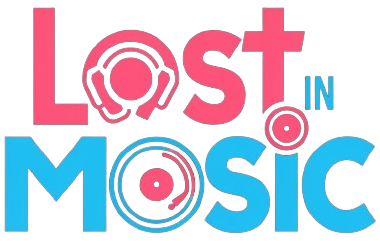Zarbi music, unfamiliar to many Western ears, is a form of rhythmic sound that originates from the East. This genre is renowned for its intricate rhythms and mesmerizing melodious interweaves. Its beautiful and complex composition has stood the test of time, captivating listeners for centuries and continuing to touch souls all around the world.
Historical Origins
Zarbi music is an ancient form of music. It originated from Persia, modern-day Iran, around the 7th century AD. Zarb, the percussion instrument that is central to Zarbi music, is one of the oldest and most cherished musical instruments in Iran. Its unique rhythms are characterized by the skillful use of strokes and slaps on the Zarb’s skin surface, producing a variety of timbres and percussive lines.
Characteristics of Zarbi Music
At the heart of Zarbi music is the Zarb, also known as the Tombak. This goblet-shaped drum holds the key to the magical sound of Zarbi music. It delivers a variety of tones, from the deep resonance of the bass to the high, sharp sound of treble. The Zarb offers a wonderful blend of melody and rhythm, making it the perfect tool to express the rich culture and ancient wisdom behind Zarbi music.
Zarbi music often follows a cyclical pattern, starting slow and picking up the pace as the song progresses. This repetitive yet captivating rhythm is often accompanied by a vocal melody. The vocals often have a hypnotic quality to them, drawing listeners into a state of trance. This allows the music to be not just heard, but also felt deeply.
Zarbi Music and Spirituality
Zarbi music is often associated with spirituality. Some believe that the rhythm of the Zarb can align the human heart and soul with the cosmic rhythm of the universe. Therefore, Zarbi music is often used in spiritual ceremonies and practices.
In Zarbi music, every rhythm, every note, and every pause has a meaning. The artists direct their energy into the Zarb, and the Zarb echoes that energy back into the universe. Therefore, the playing of Zarbi music can be seen as a form of meditation; a way for the individual to connect with the higher force.
The Global Influence of Zarbi Music
While it originally emerged from Persia, Zarbi music has indeed crossed borders and has made a substantial global impact. It has influenced various genres of music such as jazz, fusion, and world music. Contemporary musicians from varied backgrounds have embraced this exotic genre, incorporating the unique rhythm of the Zarb into their music.
Conclusion
Zarbi music, steeped in rich history and culture, moves the listener with its evocative rhythms and captivating melodies. Regardless of your musical preferences, Zarbi music offers an enchanting journey into a world of spiritual resonance and harmonic beauty. Whether you’re new to this genre or a long-time fan, the inexhaustible depth and diversity of Zarbi music ensure an eternal and rewarding engagement.
Frequently Asked Questions (FAQs)
1. What is the importance of the Zarb in Zarbi music?
The Zarb is the heart of Zarbi music, producing various tones and rhythms that characterize this genre. Its melodic and rhythmic capabilities make it indispensable to Zarbi music.
2. What makes Zarbi music unique?
Zarbi music is unique because of its intricate rhythms, enchanting melodies, and deep connection to spirituality. The cyclical patterns and hypnotic quality of the music make for an immersive listening experience.
3. How does Zarbi music connect to spirituality?
Zarbi music is often used in spiritual ceremonies because it is believed that its rhythms can align the human heart and soul with the cosmic rhythm of the universe. It is considered a form of meditation, offering a means to connect with higher forces.
4. Has Zarbi music influenced other genres?
Yes. Zarbi music has influenced numerous genres, including jazz, fusion, and world music. Musicians from around the world have incorporated the unique rhythm of Zarb into their compositions.
5. Where can I experience Zarbi music?
Zarbi music is available on several music streaming platforms. Live performances are also held at cultural festivals and artisanal venues, particularly where Middle Eastern arts are celebrated.



